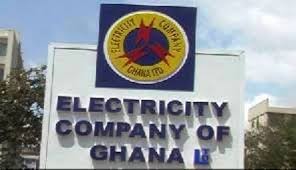
One of the first pronouncements of the President John Dramani Mahama administration upon its assumption of power in January was its intention to commence the privatization of the Electricity Company of Ghana (ECG) – or at least private participation in its activities – to stem its rising operational losses and corporate debt.
But organized labour refuses to budge. Last week the Public Utility Workers Union (PUWU) of the Trade Unions Congress publicly opposed government’s plans for ECG insisting it would worsen inefficiencies and endanger the country’s energy security.
In Ghana, public ownership of public utilities providers is seen as both protection for the populace from extortion and also a means of providing employment in an economy where job opportunities are grossly insufficient. Therefore, privatization of ECG, or even private participation in its activities, was bound to be unpopular among some stakeholder segments.
However, it has long been realized that state ownership and management of ECG is financially unsustainable. Indeed, both the previous Mahama administration and the Akufo-Addo administration that succeeded it tried to privatize it under the supervision and support of America’s Millennium Challenge Compact, although the implementation by the latter government was so rife with questionable actions that the entire process was truncated amid accusations of state malfeasance and capture.
Several years later, ECG’s finances are worse than ever, It’s debt at the end of 2023 was GHc47.2 billion (this has risen to GHc56 billion according to a recent audit) and it recorded net losses of GHc5.96 billion in that year. The African Centre for Energy Policy (ACEP) in late 2024 claimed that ECG was accumulating some US$67 million in unpaid obligations every month, while workers salaries and emoluments consume up to 65% of its income.
Recent revelations confirm that political interference at the top levels of ECG aside, the company is heavily beset with poor procurement practices, huge budget overruns, misuse and diversion of money and materials, and inefficient collection and allocation of revenues.
Instructively these are all problems that are closely related with public sector ownership and management in Ghana. Management has little incentive to be efficient – but plenty of incentive to be malfeasant – and this trickles down to the lowest echelons of the work force.
The cost of these inefficiencies are built into the tariff structure – in pursuit of full cost recovery – but the huge net losses and rising debts prove that even this is futile.
ECG’s ongoing financial woes are clearly unsustainable and to mask them would require a quantum leap in tariffs charged that would make them totally unaffordable to most households, institutions and enterprises. Therefore they have to be resolved and past experience with regards to state owned enterprises clearly illustrates that this cannot be done with the company still totally publicly owned and managed.
To be sure, the improved operational and financial efficiencies brought about by private participation would also be accompanied by significant job losses, since poor labour productivity and overstaffing are key challenges.
However, organized labour and other stakeholders who oppose private participation in ECG’s activities need to accept that the good of the entire Ghanaian populace is more important than the good of the ECG staff who would be laid off, many of whom have skills to be more gainfully employed elsewhere.
What those stakeholders should focus on now is how to make this inevitable process of partial privatization as painless as possible for everybody that would be affected.